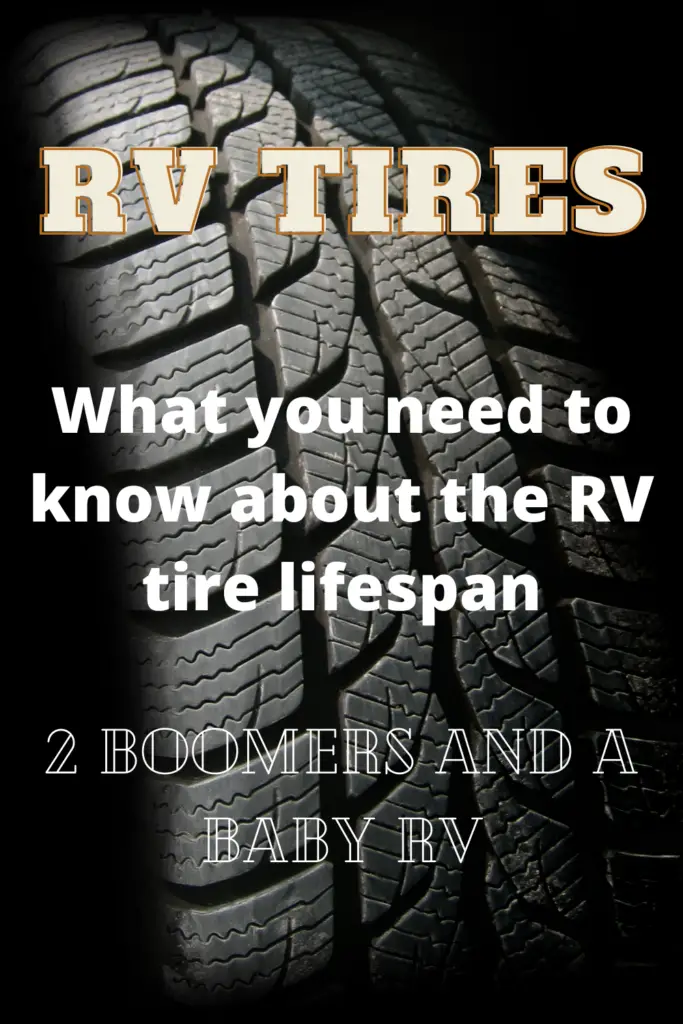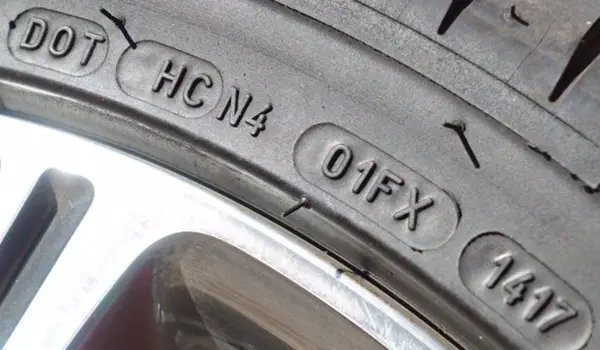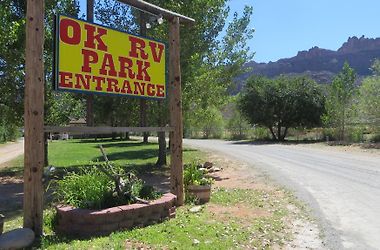If you traveling around the country with your family in tow, safety should be your main concern. Like most people, I tend to glance at my tires now and then and think they look fine. In reality, they should be well inspected on a regular basis to check for wear and tear. The biggest question is, What is the average RV tire lifespan?
How long can I expect my RV tires to last?
The rule of thumb for changing your RV tires is anywhere between four and six years. If you are on the road often, and you think your tires need to be changed, therefore it may not be possible to last as long as six years. RV tires are known to last longer with lower miles and proper care, but for me, peace of mind just slips away.
How many miles can you get from your tires?
If you are just looking for how many miles you can put on your tires you can get about 80,000-120,000 thousand miles per tire. Firstly, this may last two years if it is a commercial truck where you are constantly driving heavy loads. Secondly, RVs driving only 5,000 miles a year may take up to 20 years to obtain the same wear and tear.

If you are googling, how long should my RV tire last? I imagine you may be in need of tire replacements or servicing. If this is the case we have a great article about where to take your motorhome for repairs and maintenance.
How can I tell how old my tires are?
Check for the Date
To determine the age of your tires, check the last four digits of the DOT code. The U.S. Department of Transportation (DOT) number stamped on the tire’s sidewall contains a date code that identifies the age of your tires.
See below example of a DOT code – Last 4 digits are 1417, this would mean that tires were made in week 14 of the year 2017

Inspecting the tires
Check tire pressure
Keep tires inflated to correct spec provided on the sticker inside door jam for motorized RVs and tire manufacturers’ specs for other recreational vehicles.
A good tire monitoring system like TireMinder i10 RV TPMS with 4 Transmitters is a great upgrade that could save you from unexpected blowouts.
Check for Cracking
Sidewall cracking on RV tires is both normal and expected. It happens on ALL brands of tires, so don’t believe anybody if they tell you differently.
You should look to replace your tires if cracks in the sidewall are greater than 2/32″ deep.
Check the Tread Depth
A tire’s tread is the raised outer portion of a tire that makes contact with the road. It’s this surface that’s responsible for gripping the pavement, allowing you to steer and safely drive without sliding off the road.
If a tread on one of your RV tires is less than 6/32″ deep, you’ll probably need to replace it. Take your RV to the shop and have the suspect tire checked.
Are RV tires different than my car tires?
Motorhome tires are different from car or trailer tires. Motorhomes and towing vehicles carry a lot of weight, so ones made for a sedan won’t cut it. Always check your owner’s manual to make sure your tires are sized properly. Check the sidewall of each tire to find its age, and replace all four every 10 years or less.
Do you need to rotate tires on RV?
Tire rotation will also prolong the life of your RV tires. The tire experts at the Rubber Manufacturers Association recommend you have the tires rotated every 6,000 to 8,000 miles
How do I keep my RV tires from dry rotting?
Apply a UV protectant or ozone blocker treatment. You can purchase protectant sprays that you can easily apply to your tires blocking the harmful rays of the sun. Many automobile and RV owners think that ArmourAll will do the trick but research shows that it has been proven to hurt the tires more than help.
Why do you cover RV tires?
The rubber compounds in the tires break down from UV exposure. The sidewalls are susceptible to UV ray damage that can weaken them over time. RV tire covers also help protect against the harsh weather and cold temperatures. Tire covers will eliminate premature cracking on your RV tire sidewalls.

What are the best tires for an RV?
- Goodyear Unisteel G670 RV Tire – Midsize to Large RVs
- Boto Tyres BT926 – Large commercial vehicle such as a class A
- Michelin XPS Rib – Vans to Midsize RV
- Bridgestone Duravis M700 HD – Vans to Midsize RV’s
- Goodyear Wrangler Silent Armor – Vans to Midsize RV that get off the beaten path
- Goodyear G614 RST – Midsize Fifth wheel and Travel Trailers
- The Goodyear Marathon Radial – Large Fifth wheel and Travel Trailers
What should I park my RV tires on?
Use Wheel Blocks or Tire Cradles
Putting something between your RV’s tires and the ground or pavement where you park it can help keep your tires in good condition. Wheel blocks or tire cradles are the best options here. They will ensure that your RV’s tires rest evenly and help ensure weight is properly distributed.
Do RV tires need to be off the ground?
The tires don’t have to be off the ground. Just take the main weight off the axle. Leaving the weight of the trailer on the suspension for extended periods while stored is extremely hard on the torsion axle. The rubber will compress and not relax as fully as before over some time.
How to Get Maximum Life From Your RV Tires
- don’t store your RV for longer than six months at a time.
- use your RV as frequently as possible.
- don’t excessively wash your tires or use alcohol or petroleum-based cleaners.
- ensure your tires are always properly inflated – even when your RV is in storage.
What is the best surface to park an RV on?
Grass Pavers are an excellent long-term RV parking solution and although more difficult and costly to install than the grass protection mesh, the stability of the surface and longevity of the material are superior.
Gravel is a great surface as long as it has adequate drainage to keep your tires from sitting in water for periods of time.
Concrete Pads are probably the best initially, but it is quite costly and they can crack due to the weight if not done correctly.
Finally, Is it OK to park my RV on the grass?
Keep off the grass!
It may be the easiest and the least expensive route, but parking your rig on grass has a few drawbacks. In addition to killing off the grass, the moisture-carrying aspects of parking au-naturel could damage your tires. Think in terms of dry-rotting your expensive investment in rubber.
Let us help you out with any RV and Camping needs – please see our Amazon line of products to help keep us traveling down the road!





